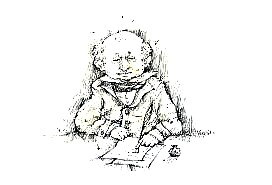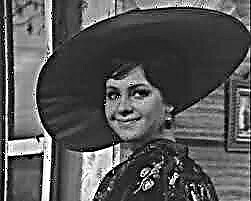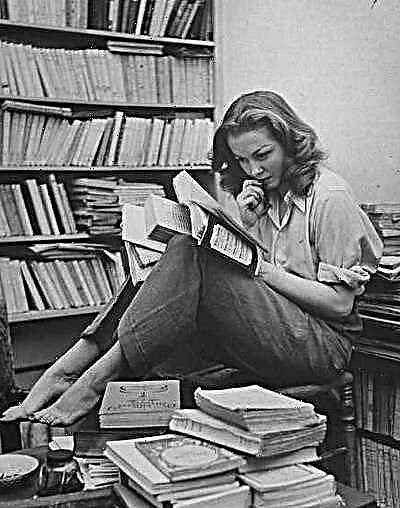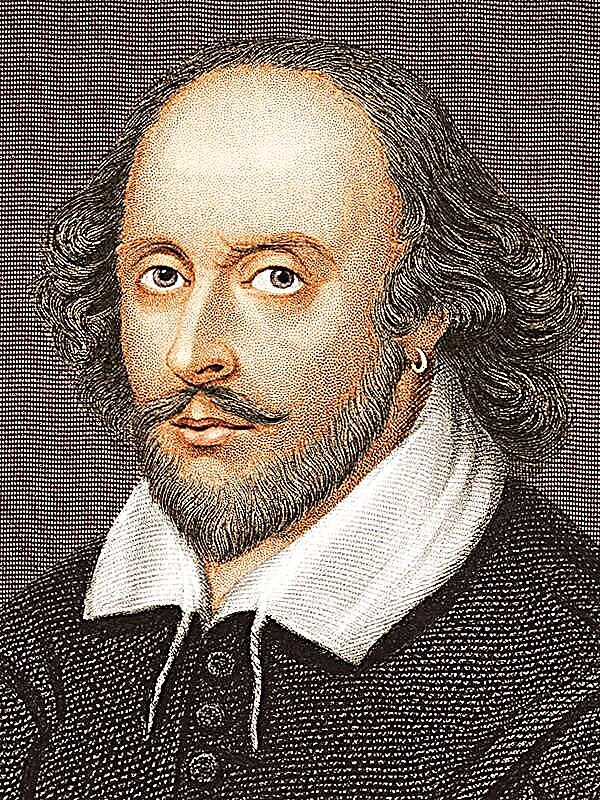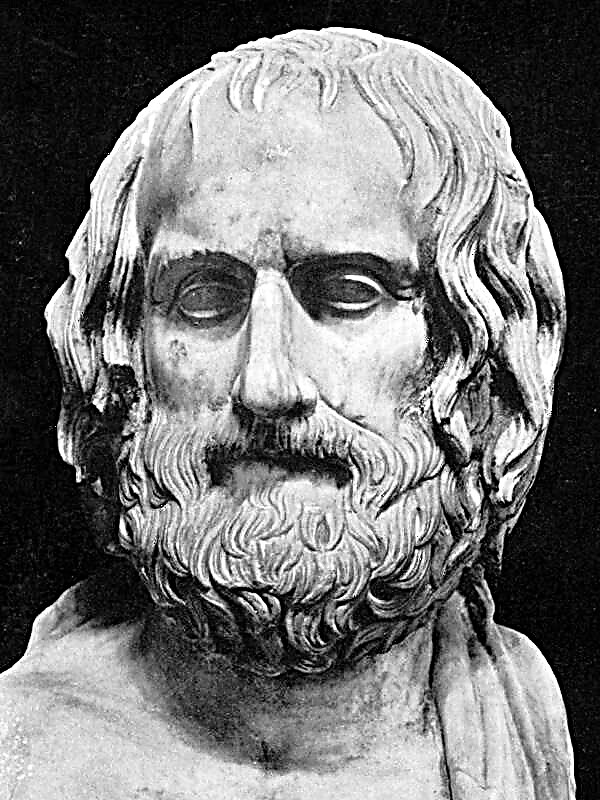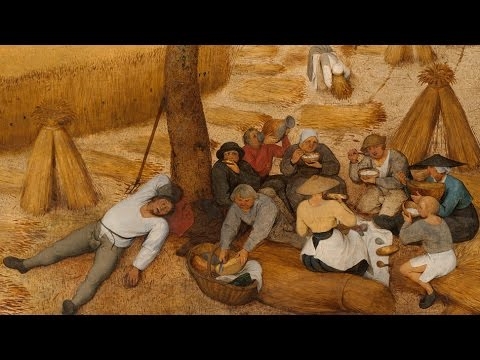Part 1. Anniversaries and triumphs
“There were worse times, / But there was no meanness,” the author reads about the 70s. XIX century In order to verify this, it is enough for him to look into one of the expensive restaurants. Dignitaries gathered in Hall No. 1: the administrator’s anniversary is celebrated. Among the main advantages of the hero of the day is the fact that he did not bring to ruin the population of the land entrusted to him. The “Ascetic” did not steal official good, and for this the assembled expresses deep gratitude to him.
In the hall number 2, an educator is honored. He is presented with a portrait of Magnitsky, the famous trustee of the Kazan educational district, who became famous as a “quencher of sciences”, who proposed closing Kazan University.
In the hall number 3, Prince Ivan is honored. The grandfather of the hero of the day was the jester of Queen Elizabeth, "he himself is absolutely nothing." Prince Ivan is passionate about vaudeville and operetta, his only joy is to call in Buff.
In Hall No. 4, they say something about the Senate, but the main place here belongs to the sturgeon. In room 5, an “agronomic lunch” is combined with a meeting. The hero of the day devoted his leisure to cattle breeding, thinking of being useful to the peasantry. But as a result of his many years of activity, he decided that the Russian people should be left to "his fate and God." For the anniversary, cattle breeder Kolenov was awarded the medal “For Jealousy and Diligence”, the presentation of which is now celebrated in the restaurant.
Hall 6 honors the inventor of armadillos and grenades. The participants know very well that the deadly weapons turned out to be worthless, and even speak about it directly in congratulatory speeches. But - what needs them in this? They celebrate the anniversary of the inventor ...
Bibliophiles gathered in the hall number 7, and from there immediately "carrion suffered." Mr. Old Testament reads out a passage from the recently found travel notes of the young man Tyapushkin, who, "having arrived in Irbit, was uncle nailed." The participants are delighted with the masterpiece, examine the manuscript in a magnifying glass and reflect on the fact that the colon over i should be restored in Russia. Zosim of the Old Testament admits that the dead writers are much nicer to him than the living. The festivities in this room are reminiscent of a "feast of tombs."
From the hall number 8 you can hear kisses and exclamations of "Hurray!". Students are admonished in Hall No. 9 for independent life, exhorting them not to indulge in anarchist dreams,
In room 10, the ubiquitous Prince Ivan raises a toast to the "king of the universe - jackpot". In the hall number 11, those gathered are touched by the activities of the philanthropist Marya Lvovna, whose calling is “to serve the people”. But the most fascinating conversation goes on in Hall No. 12: there is a grocery store here, here “you give points to a pig talking about wine”, you can give an opinion about the salad without any risk.
Part 2. Heroes of the time
In all the halls, endless celebration and celebration continues, acquiring an increasingly phantasmagoric character. Savva Antichristov delivers a speech in honor of the producer of the joint-stock company Fedor Shkurin. In his youth, the "nugget-nerd" pulled stubble from pigs, subsequently bought land from the landowner "to the last bream" and, working hard, became a railway tycoon. "Honorable persons" came to honor Shkurin in ranks and with orders having shares in commercial firms; “Plebeians” who rose from the bottom and reached money and crosses; debt-ridden nobles ready to put their name on any paper; money changers, "foreigners aces" and "pillars, bigwigs" nicknamed Zatsepa and Savva.
The new speaker - the money changer - expresses the idea of the need to establish a Central House of Tolerance and hopes to give this thought a grandiose development. The hook-pillar agrees with the speaker’s thought: “What is considered shameful today, / Awarded with a crown tomorrow ...”
Soon, the speeches become less cohesive, and the celebration grows into an ordinary booze. Prince Ivan follows one of the “modern Mitrofans,” in which the spirit of the times is visible: “He is cowardly by cowardice, / Shameless by ignorance, / And a scoundrel by stupidity!”
The audience condemned the press, lawyers, Austrians, the judicial investigation ... A fussy businessman enthusiastically convinces the Jewish interest-bearing man that with the pamphlet "On Interests" he declared his connection with literature and should now direct his talent to serving capital. The interest-holder doubts his talent, he does not want to be known as “dummy in literature”. But the businessman is convinced that “now is the kingdom of the shells” and “capital rules the press”.
Prince Ivan makes fun of Burke the Jew, who became rich in a profitable contract. He is convinced that the "Jew" does not care for Christian souls when he achieves generality.
Among the “plutocrats," renegade professors are especially notable. Their story is simple: up to thirty years they were honest workers of science, smashed plutocracy, and it seemed that they could not be led astray by any money. Suddenly, they started speculating in the stock market, using their oratory abilities - “machine eloquence” for this. Former scientists became talking machines, “preferring seductive metal over scholarly fame”; they can speak without being embarrassed by the contradictions in their own phrases. These people brought the power of their knowledge to help scammers, they are ready to assert “every plan is basically shaky,” and humane ideas have not bothered them for a long time.
Among those gathered, Eduard Ivanovich Grosh is also noticeable, whom you can generally meet in any meeting with which you do not need either a telegraph or newspaper news. This person can squeeze a bribe anywhere and get everything: mortgage, pug, husband, cottage, house, capital, even the Portuguese order.
In the midst of a merry feast, the drunken hook-pillar suddenly begins to sob, calling himself a thief. But his revelations evoke the same feeling among those who gathered that the cry of Getaera, who, on the slope of the prodigal days, suffers about the loss of virtue. Prince Ivan is confident that "now only those who have not stolen a million" are yearning. He recalls the university professor Schwabs, who inspired students with contempt for interest and capital, and then became the director of the loan office. He also recalls Count Tverdyshov, who always suffered from hungry peasants, and ended up paving an wasted road along wastelands, burdening the peasants with new taxes.
The Jews also reassure Zatsep, convincing him that if there is money, there can be no harm and danger. They are interrupted by an orator-philosopher who raises a toast to the “Russian inviolable honor”, which, in his opinion, consists in “cutting off the whole world right away”.
Having plenty of tears and philosophizing, the heroes of the time sit down at the card table.

